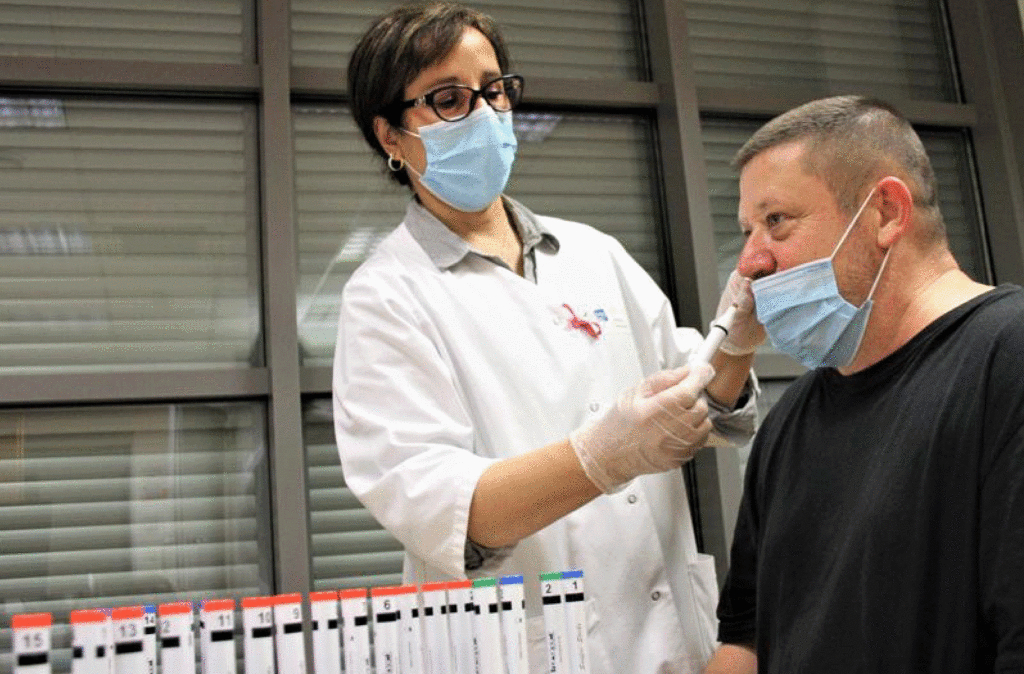Deprived of Odors, They Will Re-Educate Their Noses – Translated Article from l’Est Republicain, France. By: Stephanie Cheffer
Affected by the new Coronavirus, they escaped but now live without feeling anything, or almost: having become partially or totally anosmic [having no sense of smell], these former patients follow an innovative protocol of olfactory rehabilitation, set up at the CHRU Nancy [a hospital in Nancy, France].
They escaped the worst, recovered from Sars-CoV 2, but their lives are now much duller. As the viral infection caused inflammation of their upper respiratory tract and destroyed all or part of their olfactory cells, these victims of the novel coronavirus were deprived of their ability to smell odors. And this disappearance – often very sudden – of the sense of smell, a warning sign or symptom of the installed disease, persists after remission.
As requests for treatment for anosmia have multiplied in this context of crisis, the CHRU Nancy has just launched, through its “otorhinolaryngology and head and neck surgery” service, a new protocol for intensive olfactory rehabilitation: morning and evening for eight months, patients must inhale eight scents (10 seconds each, with 30 seconds at one minute intervals), scents in the form of beads enclosed in small tubes.

The olfactory rehabilitation being developed in Germany or Belgium but very little in France, the Nancy service relied on the four basic scents used by our neighbors (rose, eucalyptus, clove and lemon) and added four scents. (strawberry, cut grass, lavender and spruce) suitable to stimulate the olfactory cells.
“The objective is to assess the effect of this accelerated rehabilitation on a return to normalcy”, summarizes Dr Duc Trung Nguyen, who developed this odor kit with the Inhalio laboratory in Saint-Malo [Keith Kelsen, CEO, Inhalio / Yves Cotarmanac’h, COO, Inhalio].
“I can sniff my perfume bottles …”
After a first diagnosis based on the breathing of scent sticks and aimed at measuring the degree of loss of smell, then a nasal endoscopy, in order to eliminate any other cause, each participant then spends a few days on corticosteroids (not prescribed for patients during the crisis, they can reduce inflammation) before the actual rehabilitation phase, at home.
“I really hope that will improve things,” sighs Ophélie, who lost all sense of smell on March 27. “I have the date in mind because it was drastic; At home, no matter how much I sniff my perfume bottles, household products or any food, I can’t smell a thing! In the long run, it’s very disturbing, “admits this resident of Damelevières. “I can tell sometimes if it smells good or bad, but I don’t know what it is, what it is from.
“Like the others, she perceives tastes (sweet, salty, bitter …) while eating, but that’s it. “At first,” smiles Pauline, “I ate everything with mustard: at least it stung! I try to focus on the textures, or the spices. The 28-year-old young woman also clings to this rehabilitation to regain her olfactory sensations, lost overnight, in mid-March. “The worst part is that before, I had a very good smell, I could recognize a wine by the nose …” Like her, they should be 80 anosmic and “ex Covid” to follow this protocol. To finally reconnect with smells, and a life full of flavors.
Author: Stephanie Cheffer for l’Est Republicain, France. Sunday, October 25, 2020 Published Article: https://www.estrepublicain.fr/sante/2020/10/25/prives-d-odeurs-ils-vont-reeduquer-leur-nez
Other Related Articles On this Subject:
